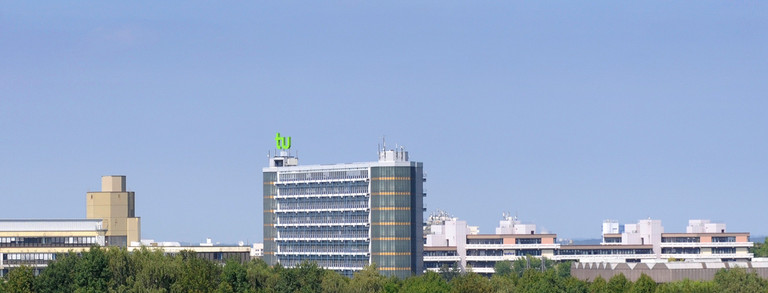Interdisciplinary Project “Virtual Reality Moves” Wins DIVR Science Award
- Research
- Top News

As technologies such as virtual reality (VR) or augmented reality (AR) become increasingly commonplace in everyday life, research projects are required that address how these technologies can be put to meaningful use in a variety of applications. The German Institute for Virtual Reality presents the DIVR Science Award every year to acknowledge and promote university projects of this kind. From the pool of over 50 applications from Germany and abroad, 21 teams were invited this year to present their work to a panel of experts as well as an audience of specialists and curious members of the general public as part of the DIVR Expo at the Places VR _ Festival.
As a project with particular social relevance, “Virtual Reality Moves”, the joint project from TU Dortmund University, Ruhr University Bochum and the University of Duisburg-Essen, was able to win over the panel of judges. It is a VR learning concept that teaches self-efficacy in relation to the use of digital media. The main aim is to examine which motions and bodily experiences arise when interacting with virtual environments. Funded with a two-year grant from the Mercator Research Center Ruhr (MERCUR), “Virtual Reality Moves” saw undergraduates from Bochum’s sports science and computer science programs join forces with undergraduates from TU Dortmund University’s special needs teacher training program in interuniversity seminars from 2019 to 2021. To help the project, the Center of consulting and clinical intervention (CCI) granted access to the premises of its Clinic for Adapted Physical Activity and Movement Therapy in the sports building of TU Dortmund University.

VR technology in schools and sports
Alongside the team of bachelor students, the researchers behind the project examined the topic of movement and virtual reality from a variety of perspectives and across several disciplines. The students developed their own research projects and observed people’s experiences with self-efficacy when using digital media. The projects deal with such topics as the use of VR technology in schools and sports as well as the social responsibility to ensure equality between people with and without disabilities. For example, one project dealt with movements in wheelchairs in VR applications.
The panel of judges was particularly impressed by the potential of the “Virtual Reality Moves” project to optimize teaching as well as the collaborative spirit that brought the universities to together. “We are delighted with the award! Our project actively aims to address the subject of movement with, in and through virtual reality from a variety of perspectives. Very little research has been done on this until now. The results provide insights into which innovative approaches can be developed with VR for university teaching,” says Dr. Caterina Schäfer. The concept is set to be further tested and discussed through interdisciplinary collaboration and further developed at other university locations and in school settings.
More information about the DIVR Science Award (german)
More information about the "Virtual Reality Moves" project (german)
Contact for queries:





![[Translate to English:] Partner Four hands are holding the green logo of TU Dortmund University](/storages/tu_website/_processed_/1/d/csm_Partner_Nicole_Rechmann_KW_670eba0154.jpg)




![[Translate to English:] Forschung An apparatus with tubes in a laboratory](/storages/tu_website/_processed_/0/c/csm_Forschung_Juergen_Huhn_4fa3153b51.jpg)
![[Translate to English:] Studium Five students are sitting in a lecture hall. They are talking to each other.](/storages/tu_website/_processed_/c/9/csm_Studium_FelixSchmale_dbdbfb0dd7.jpg)





